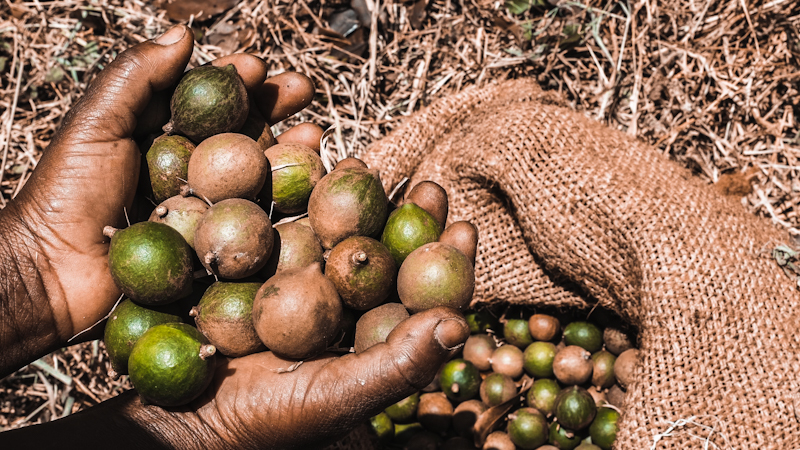The MACNUT Association of Kenya has called on the government to maintain its ban on the export of raw macadamia nuts, citing the significant benefits of local processing for the Kenyan economy and farming communities.
The ban on unprocessed nuts was effective on November 2, 2024.
The association said in response to concerns raised by the Nut Traders Association of Kenya (NUTAK) regarding the export restrictions.
MACNUT emphasised that local value addition creates more jobs, generates higher national revenue, and allows for diversified market access across Africa, the USA, Europe, Asia, and the Middle East. They argue that exporting raw nuts primarily benefits traders, leading to limited job creation, revenue loss, and exploitation of farmers.
“The export of nut-in-shell is fraught with malpractices that undermine the integrity of the macadamia industry,” stated Maigua.

The association highlighted issues such as underreporting export volumes, collusion between traders and farmers to bypass regulations, and the sale of substandard nuts, which damage Kenya’s reputation in the global market.
“The export of nut-in-shell is fraught with malpractices that undermine the integrity of the macadamia industry. Many traders engage in unethical practices, such as underreporting the volumes of nuts exported, which leads to significant revenue losses,” Jane Maigua, Chairperson of the MACNUT Association, said in a statement Wednesday.
MACNUT also raised concerns about the environmental impact of raw nut exports, citing the deforestation required for drying unprocessed nuts. They stressed the importance of sustainable practices for the long-term health of the macadamia sector.
The association outlined its collaborative efforts with the government to support farmers, including enhanced direct sourcing, training on good agricultural practices, dissemination of high-yielding seedlings, and exploration of credit financing options. They also expressed concern about the illegal trading of unprocessed macadamia nuts, warning of potential adulteration of raw materials.
MACNUT believes that maintaining the ban on raw nut exports is crucial for the sustainable growth of the industry. They estimate that the processing and export of value-added macadamia products could contribute over USD 80 million (KES 10 billion) to the Kenyan economy, create 30,000 jobs, and support over 200,000 households.
“We urge the government… to strongly maintain and enforce this law without being unduly pressured by parties that are not interested in supporting the growth and expansion of the sector.”
“The future of Kenya’s macadamia industry hinges on local value addition, which is critical for its growth and prosperity.”
FarmerAI: AI Chatbot Empowers Kenyan Smallholders with DigiFarm




